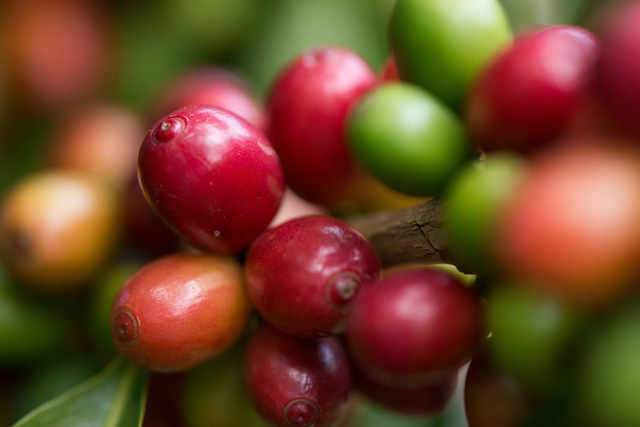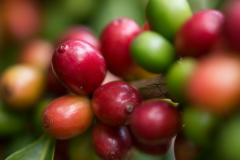The Origin, characteristics and long-standing Market trend of Mocha in Yemen

Professional coffee knowledge exchange more coffee bean information please follow the coffee workshop (Wechat official account cafe_style)
The hometown of mocha coffee-Yemen
Yemen is the first country in the world to produce coffee on a large scale as a crop. Yemeni mocha coffee has distinctive taste characteristics, special taste and varied levels. It has a strong sour taste, a pleasant fruit acidity, and an obvious chocolate flavor. The stronger the coffee is, the easier it is to taste the chocolate. Therefore, in order to better understand the unique taste of Yemeni mocha coffee, people now add hot chocolate to make fancy mocha coffee.
Throughout the history of Yemen, coffee has been shipped and exported from the port of Mocha to markets around the world, so they are collectively known as mocha coffee. So far, the port of Mocha has been filled with sand and turned into a sandbar. It should be no stranger to coffee lovers. Yemeni mocha is internationally recognized as one of the oldest and most delicious coffee.
Everyone has heard of "mocha coffee". What exactly is "mocha"?
There are many answers to this question. Some people say that mocha is a certain place of origin, and some people remember that mocha is sweet chocolate coffee. In fact, authentic mocha coffee is only produced in the Republic of Yemen in the southwest of the Arabian Peninsula and grows on steep hillsides with elevations of 3,000 to 8,000 feet. It is also the oldest coffee in the world.
More than 500 years ago, Yemen produced coffee in an ancient way. In the early 17th century, the first batch of Yemeni coffee sold to Europe was exported through the ancient port of Mocha, which surprised Europeans. The delicious coffee shipped from the port of Mocha was called "mocha coffee", which is the origin of the name "mocha coffee".
Neighboring Ethiopia across the Red Sea also sells coffee through the port of Mocha, so Ethiopian sun-treated coffee is often called mocha. (such as Mocha-Hara Ethiopia Harrar) now the old port of Mocha has long been abandoned due to sediment deposition (today's place name Al Makha) and is exported by the northwestern port of Hudaida (Hodeida). However, people have long been accustomed to the name of Mocha, which is famous to the sky.
Deep-roasted Yemeni coffee often shows a chocolate-like caramel sweet flavor, so when you see the word "mocha coffee", it may refer to pure Yemeni coffee, or neighboring Ethiopian coffee, or simply. In any case, for picky coffee gluttons, only real Yemeni coffee is qualified to be called "mocha coffee."
The word "mocha" has a variety of spellings: Moka, Moca and Mocca are all common spellings, and as many as four local spellings have been seen on gunny bags and documents of Yemeni coffee: "Mokha", "Makha", "Morkha" and "Mukha", all with the same meaning.
The Yemeni mocha is the originator of the world coffee trade and has played an important role in promoting delicious coffee all over the world. In the 17th century, it was called "Arabica coffee" (Arabia) (this is the origin of the name "Arabica" later! Yemeni mocha sailed across the ocean to Italy and other European Catholic countries, and for more than 150 years, Yemeni coffee has been the only coffee producer sold to Europe.
In ancient times, in conservative Catholic countries, extraordinarily good things were often considered evil, and coffee was once burdened with inexplicable evil. It was not until the Vatican Pope, who also loved coffee, declared that coffee was a Catholic drink and blessed coffee drinkers that coffee began to spread widely in Europe. Although Ethiopia was the first country in the world to discover coffee, it was Yemen that carried it forward.
The only surviving ancient fish in the coffee world.
Today, Yemeni coffee farmers still produce coffee in the same way as they did 500 years ago.
Coffee berries grow naturally on trees, do not use any artificial fertilizers or pesticides, receive a small amount of rain and fog on the hillside in summer, blossom and bear fruit, and in dry winter, ripe coffee berries are allowed to hang on the trees to dry naturally-a very unique and rare practice, because the extremely dry climate and intense sun in Arabia allow this to be done in other coffee producing areas. The same practice may cause coffee berries to rot on the trees.
Ripe or dried coffee berries fall naturally from the tree, or are shaken and picked. Coffee farmers, with a total population of nearly 1/4 in Yemen, bask their berries on their roofs, low sheds in front of their doors, or even spread them directly on the dirt floor to be exposed to the fierce and dry winter sun. After drying the peel and pulp, grind off the dried hard shell and pulp with an old-fashioned stone mill (two stone mills stacked on top of each other). This is how the coffee beans are treated!
A small number of coffee farmers in Yemen still use animals (such as camels and donkeys) as a source of stone grinding power. Compared with the Central and South American countries that use advanced machinery and equipment to deal with coffee beans in large quantities, and even neighboring Kenya, which has a short history of coffee, the Yemeni mocha is the only living gourmet in the coffee world! Do you know? The Yemeni coffee you drink today is basically not much different from the "Arabian coffee" enjoyed by aristocratic European businessmen hundreds of years ago in the oldest coffee shop in Europe in the square of St. Mark's in Venice, Italy.
Beans and berries produced in Yemen (Peaberrybean): this coffee bean is smaller and rounder than most coffee beans and looks like peas, sometimes called mocha coffee beans. Mocha beans are similar in shape to Ethiopia's Harrar coffee beans, with small particles, high acidity and a strange and indescribable spicy flavor. Taste carefully, but also can distinguish a little chocolate flavor, so the attempt to add chocolate to coffee is a very natural process of development.
The taste of Yemeni mocha is complex and changeable, and it is a challenge for coffee roasters to bake out the best flavor of Yemeni mocha. Medium and shallow roasting shows sweet fruit, mild, warm sun-fermented flavor; deep baking shows a strong aroma of red wine, bitter sweet chocolate finish.
Flavor: exotic, slightly alcoholic, spicy and exciting, different, must be tasted
Suggested baking method: medium baking
★★★: excellent
Yemeni coffee market:
Yemeni coffee is exported from December to April. The problem in the past has been that coffee from the north was mixed with shoddy stuff before it was shipped from the southern port of Aden. Only coffee shipped from the port of Hodeida can be determined to come from the north. The vast majority of Yemeni coffee is grown under natural conditions, mainly due to the lack of funds from growers.
Since people started drinking coffee, mocha has been recognized as a good coffee with distinctive acidity, and some people think that mocha's special acidity is menacing. That's because after a hard day's work, people's sense of taste becomes dull to delicacy. The coffee itself is very fragrant. Yemenmoka is represented by Mattari produced in Bani Matar. It has a sweet, smooth and unique flavor. The quality of being slightly sour and having strong stamina. Mocha is suitable for mixing with Milds coffee, especially with Mysso Coffee, Indonesian Java Coffee and Sumatra Coffee. Locals like to make Turkish coffee with a mixture of mocha and Meso. It is the most suitable coffee to drink after a meal. It is also the best of mochas.
Important Notice :
前街咖啡 FrontStreet Coffee has moved to new addredd:
FrontStreet Coffee Address: 315,Donghua East Road,GuangZhou
Tel:020 38364473
- Prev

What is the old Manning, his area of origin?
Old Mantenin Indonesia is the largest archipelago country in the world. Arabica coffee was introduced into the Netherlands during the colonial period in the 18th century and began to grow until it became the top five coffee producing country in the world in modern times. the main producing areas are located in Sumatra, Java and Sulawesi. The northern part of Sumatra is relatively high above sea level, Aceh Province and Lake Toba where Lake Tawar is located.
- Next

The Origin, characteristics and long-standing Market trend of Fine Coffee Yemeni Moka
Professional coffee knowledge exchange more coffee bean information please follow the coffee workshop (Wechat official account cafe_style) Yemen, the hometown of mocha coffee, Yemen is the first country in the world to produce coffee on a large scale as a crop. The Yemeni mocha coffee has distinctive taste characteristics, special taste and varied levels, it has a strong sour taste, it is the kind of pleasant fruit acidity, and
Related
- Detailed explanation of Jadeite planting Land in Panamanian Jadeite Manor introduction to the grading system of Jadeite competitive bidding, Red bid, Green bid and Rose Summer
- Story of Coffee planting in Brenka region of Costa Rica Stonehenge Manor anaerobic heavy honey treatment of flavor mouth
- What's on the barrel of Blue Mountain Coffee beans?
- Can American coffee also pull flowers? How to use hot American style to pull out a good-looking pattern?
- Can you make a cold extract with coffee beans? What is the right proportion for cold-extracted coffee formula?
- Indonesian PWN Gold Mandrine Coffee Origin Features Flavor How to Chong? Mandolin coffee is American.
- A brief introduction to the flavor characteristics of Brazilian yellow bourbon coffee beans
- What is the effect of different water quality on the flavor of cold-extracted coffee? What kind of water is best for brewing coffee?
- Why do you think of Rose Summer whenever you mention Panamanian coffee?
- Introduction to the characteristics of authentic blue mountain coffee bean producing areas? What is the CIB Coffee Authority in Jamaica?

